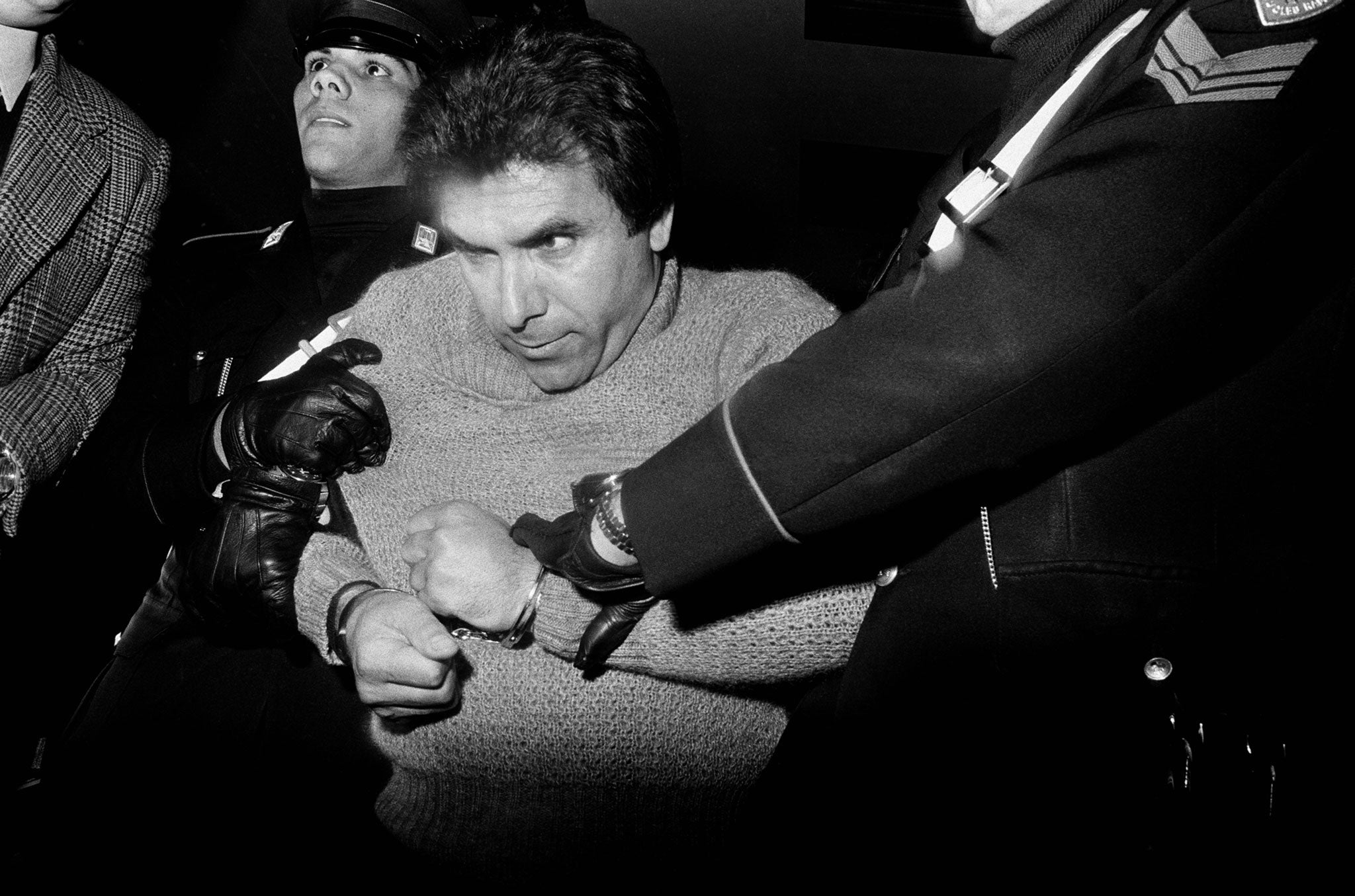Death becomes her: Sicilian photojournalist Letizia Battaglia has spent her career covering the grim results of southern Italy's Mafia wars
Battaglia's images of the Cosa Nostra have defined Italy's struggle with mobster violence. As the first major UK exhibition of her work opens, she explains how her images are more relevant than ever

Your support helps us to tell the story
From reproductive rights to climate change to Big Tech, The Independent is on the ground when the story is developing. Whether it's investigating the financials of Elon Musk's pro-Trump PAC or producing our latest documentary, 'The A Word', which shines a light on the American women fighting for reproductive rights, we know how important it is to parse out the facts from the messaging.
At such a critical moment in US history, we need reporters on the ground. Your donation allows us to keep sending journalists to speak to both sides of the story.
The Independent is trusted by Americans across the entire political spectrum. And unlike many other quality news outlets, we choose not to lock Americans out of our reporting and analysis with paywalls. We believe quality journalism should be available to everyone, paid for by those who can afford it.
Your support makes all the difference.Warning: contains disturbing images
'Don't think the Mafia's gone away. It's still there, especially in Sicily's politics," says the photographer and photojournalist Letizia Battaglia, whose images of the Cosa Nostra have defined Italy's struggle with mobster violence.
With the first major UK exhibition of her work opening, she explains how her images are more relevant than ever.
Aged 79, Battaglia speaks freely in a gravelly voice and without the formality of many southern Italians. "These days it's harder to photograph the Mafia," she says, "because they're graduates; they wear suits, and work in banks and politics. It's not the same peasants we saw in the past."
Palermo-born, but trained in Milan, Battaglia worked in Sicily as a front-line photo-reporter in the bloody period of the Eighties and early-Nineties. This began with ferocious internecine turf battles and the murders of senior police officers and politicians, and culminated with the Mafia's brief but shocking war on the Italian state, in which two leading anti-Mafia judges died in bomb attacks.
The two assassinated magistrates, Giovanni Falcone and Paolo Borsellino, murdered within months of each other in 1992, were dear friends of Battaglia.
In the past two months, however, Toto Riina, the jailed former boss of bosses who orchestrated these killings, issued a death threat from prison against the incumbent anti-Mafia magistrate Nino Di Matteo. Sources claimed explosives were being readied.
The news froze Battaglia's blood. "I felt ill. Reality was slammed in our faces again in no uncertain way. These good judges are isolated and they [the Mafia] can still kill them in their cowardly way whenever they like." Despite having received many death threats herself over the years, she joined a demonstration supporting Di Matteo wearing a T-shirt emblazoned with the words Scorta Civica (Civil Bodyguard).
This is why, she says, it's vital that Sicilians and Italians never forget what the Mafia is capable of. "There might be fewer murders at the moment, but that's because the Mafia is keeping a lower profile. But there's still violence and terrible corruption, and huge numbers of people forced to pay il pizzo [extortion money]."
The exhibition at Liverpool's Open Eye Gallery draws on Battaglia's archive of over 600,000 images, shot from the mid-Seventies to the early-Nineties, and also includes some recent projects.
Her most famous monochrome images show death and squalor – memorably in the immediate aftermath of the shooting of a prostitute and two clients. But Battaglia created tension in her work by combining such images with delicate still lives and intense portraiture of Sicilian children and women. As such, she showed how organised crime is blighting the lives of whole families and generations.
Battaglia the campaigner is as vocal as ever, even if she works more sparingly now. She notes that Di Matteo, the magistrate threatened in December, is currently investigating the presumed negotiations between Cosa Nostra leaders and state officials at the time of the 1992 bombings – senior police officers and a former internal affairs minister have already been put on trial.
"It's essential to know the whole truth today. Who were these men of the institutions – accomplices of Cosa Nostra? Only with the truth will it be possible to obtain justice and to establish a climate of trust. We still need good journalism to make this happen"
Letizia Battaglia: Breaking the Code of Silence, 22 February to 4 May, Open Eye Gallery, Liverpool, www.openeye.org.uk
Join our commenting forum
Join thought-provoking conversations, follow other Independent readers and see their replies
Comments